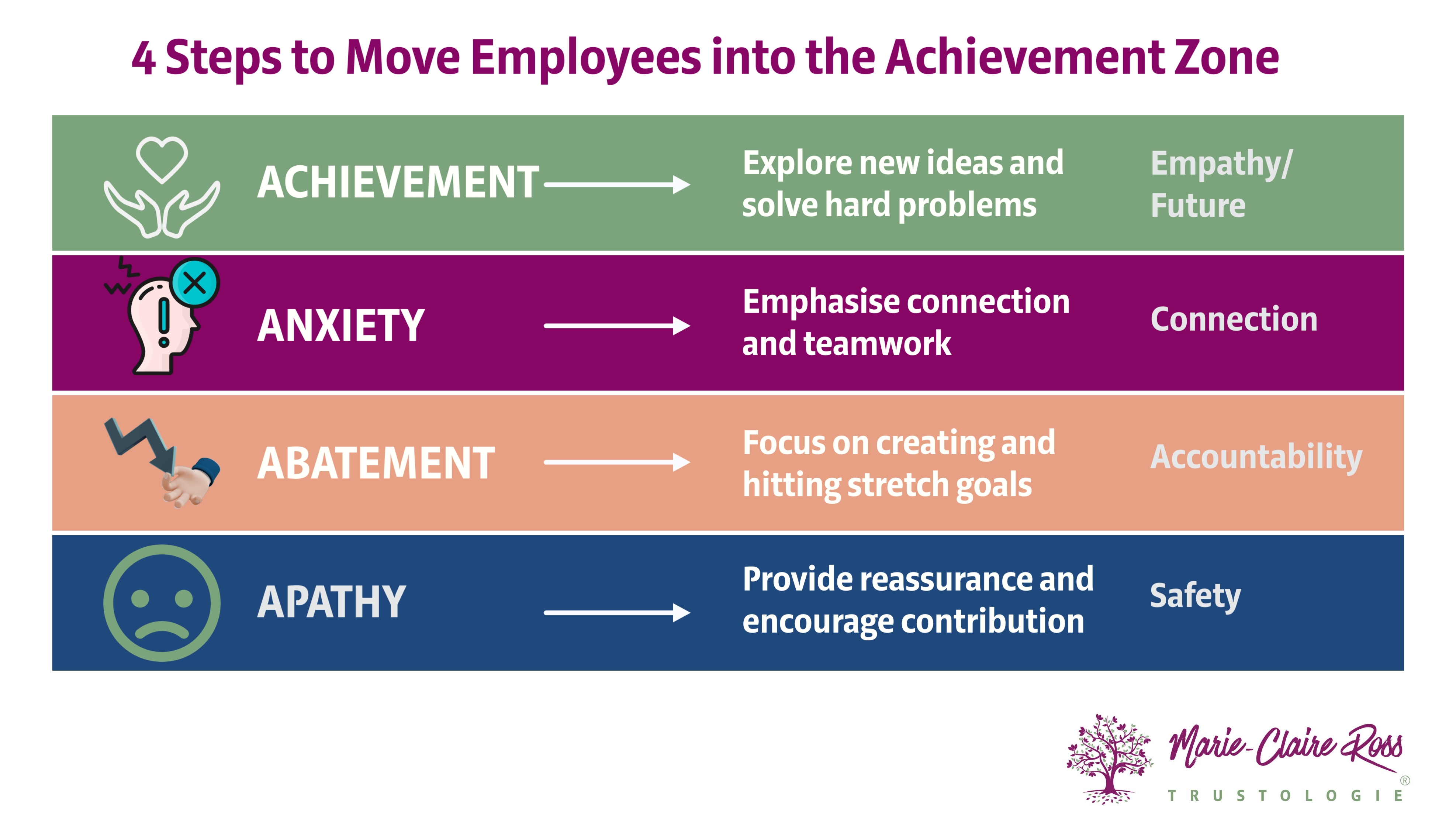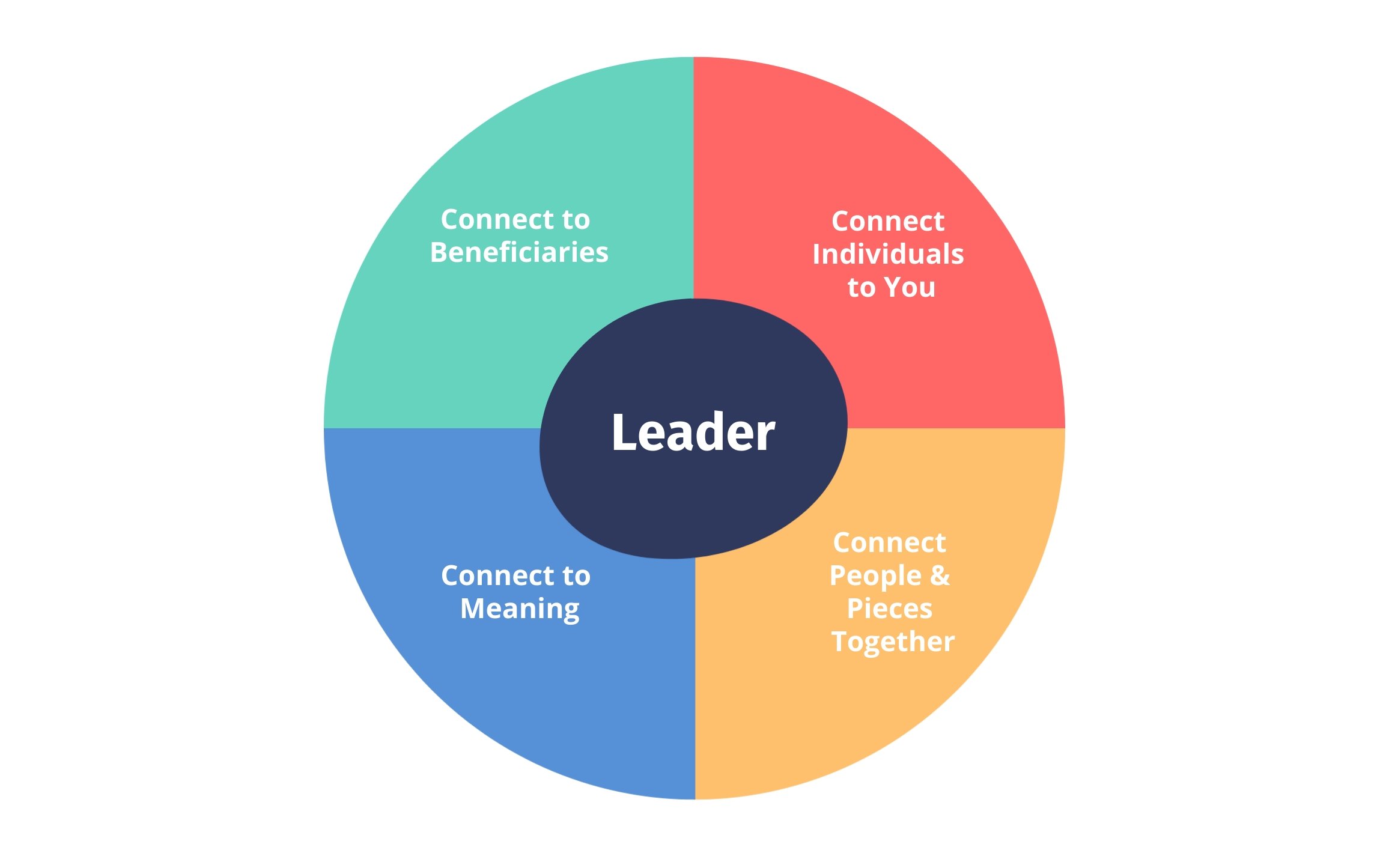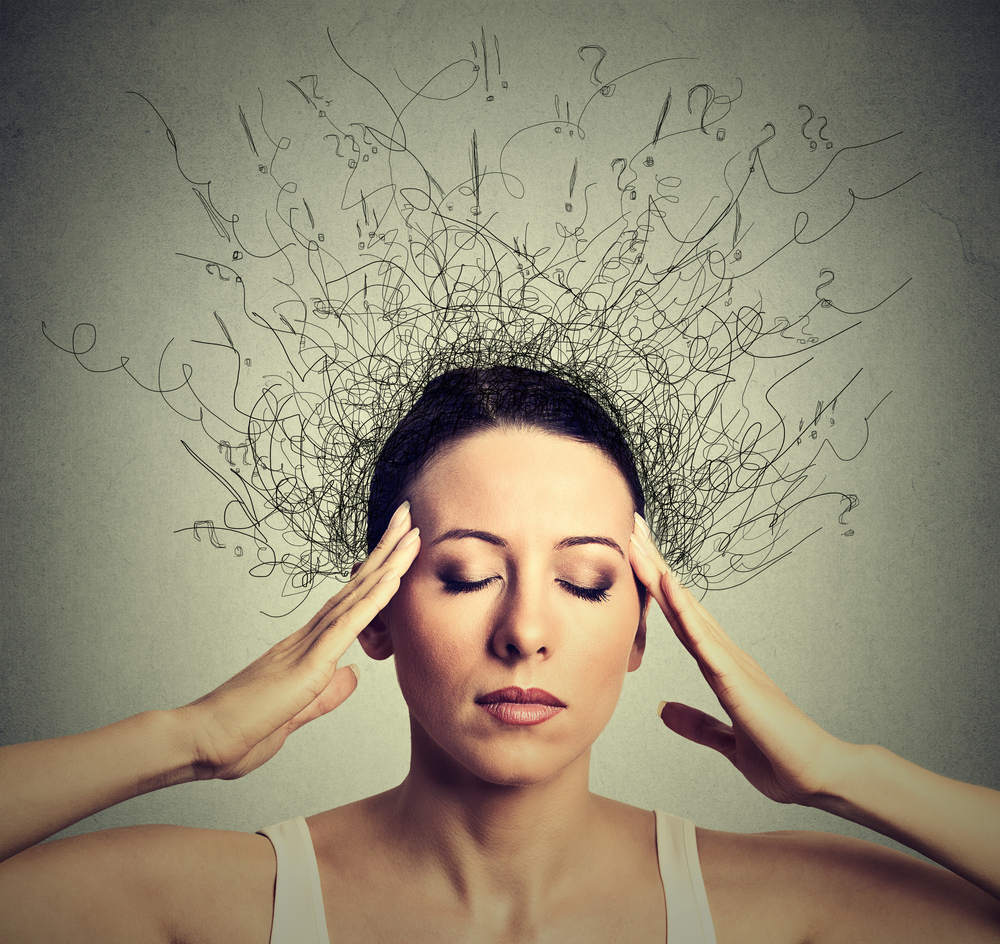11 min read
4 Practical Strategies for Better Emotional Management in the Workplace
I have a friend who often finds herself at the mercy of her emotions. Recently, she called me to rehash a confrontation she’d had with a group of...
Develop leaders, strengthen executive teams and gain deep insights with assessments designed to accelerate trust and performance.

Transform how your leaders think and perform with keynotes that spark connection, trust and high-performance cultures.

Explore practical tools, thought-leadership and resources to help you build trusted, high-performing teams.

Trustologie® is a leadership development consultancy founded by Marie-Claire Ross, specialising in helping executives and managers build high-trust, high-performing teams.

3 min read
Marie-Claire Ross : Updated on August 16, 2021
.jpg)
Back in 2014, I decided to step out of the family business I had built up with my husband and start my own company centred on trust (Trustologie®).
A wise friend cautioned me that if I was to teach other people how to build trust, I had to learn to trust myself first. I was surprised, but intrigued by her response.
She was right. But it took me years to fully understand what she meant.
The last seven years have meant trusting my skills, capabilities, knowingness and beliefs at a level I never had to think about before when I could hide behind a company name. When you're out in front spruiking yourself, trusting yourself is key. And it hasn't been easy. In fact, I realise now that I need to work at it every day.
What I find fascinating is that every leader I coach or train in workshops is dealing with their own self-trust issues whether they are aware of it or not. In fact, I am finding that about 70% of my coaching work is helping people trust themselves more.
When it comes to trust I believe there are three trust forces that we have to deal with that are multidirectional. We have to trust others and they have to trust us. And this is on three levels - they are macro forces outside of the team, meso forces between team members and micro forces within ourselves.
The critical one that impacts everything is the micro level. It's foundational and it is the only one we have any real control over. It's about our level of self awareness, trusting others, ourselves, our capabilities and even a higher power.
And why it's important is that when I talk to leaders who have built successful careers and been phenomenal at leading people - they trusted themselves. They felt that people needed their guidance and that they were equipped to do that. They believed in themselves and their people.
.jpg?width=3947&name=3-Types-of-Forces-that-Impact-Trust%20(2).jpg)
Typically, our self-trust levels take a little fall when we start a new job or contract. It could be that we doubt whether we can lead a new team, or communicate well to senior executives or the CEO or even learn new skills. Or it could be we are criticised harshly in our job that makes us question ourselves. Sometimes personal issues interfere as well, such as issues with toxic partner, friend or relative. Other times its the macro level trust forces that impact us - external changes like a pandemic or restrictive bureaucracy.
It varies person to person, but you know you are dealing with self-trust issues when you feel anxious and avoid change. When your confidence takes a dive and you question yourself. And you start feeling negative about your prospects and abilities. I notice it when I avoid important things I need to do - preparing for a workshop or making a client call. Or when I find it hard to feel joyful in my day.
The most important person we can trust is our self. When we make a mistake, receive
harsh criticism, or miss a goal, it can be too easy to lose trust and confidence in our
selves. This is detrimental to our leadership capability as our decision-making abilities
falter when we fear that we will make the wrong choice. We over-think, panic and freeze.
When we don’t trust ourselves to lead or we don’t think we are worthy of being a leader,
other people feel that and automatically don’t trust us. They feel something is wrong with
the energy we project. While they might feel our power or capabilities, they will be
confused as to why we don’t own that.
Leaders that don’t trust themselves tend to not trust others and the situation. At a deeper
level, how we trust others is a reflection of ourselves and our own fears and insecurities. If
we don’t trust ourselves, it means we operate from fear rather than from a positive and
expansive outlook. We self-protect, rather than work for the interests of our people or customers.
And so my questions to you are:
1. Where in your life are you not trusting yourself right now? Is it with your finances, your skill level, your ability to form relationships, communicate clearly or be a loving parent?
2. Where do you feel you need to trust yourself more?"
3. What might you have to believe trust yourself?
4. How would trusting yourself more improve your life?
In my experience, learning to trust ourselves is hard. It is one of the biggest issue most leaders need to deal with when their career goes off track or when they feel burnt out or stuck. Not only that, it's a lifelong journey. You're never done. Our levels of self-trust ebb and flow as life throws us challenges and celebrations. And what makes it really hard is that so few of us check in with ourselves to see where we are at. Without realising it, we are on a downward spiral that is hard to stop. But the good news is we can get it back - it just takes the self awareness it's time to get help and do something about it.
And when we do trust ourselves, life and opportunities open up and we can jump on a frictionless freeway to our dreams.
Did you know I help technical people, in IT, legal and finance professions who are about to start a new role that requires increased communication and relationship building skills? I help both emerging and current leaders increase their confidence in their leadership, relationship-building and communication.
I have 5 spots available in the next 3 months, if you, or someone you know, would really like to feel more confident working with a range of new stakeholders or leading a team, please get in touch with me.

11 min read
I have a friend who often finds herself at the mercy of her emotions. Recently, she called me to rehash a confrontation she’d had with a group of...

9 min read
True leadership presence isn’t a performance or a set of charisma hacks; it is the felt experience of who you are being in the room. By cultivating...

13 min read
As teams return from their summer (or winter) break, you may notice subtle shifts in your team’s energy. Even if the end of year was positive, a new...

A weird and sad coincidence happened to me recently.

Workplaces tend to have lots of interdependencies, complexity and unknowns that change daily.High achievement leaders provide their team with ...

Leading a high performance team is a bit like a team leader taking their team on an exhilarating elevator ride to the 100th floor of a building.